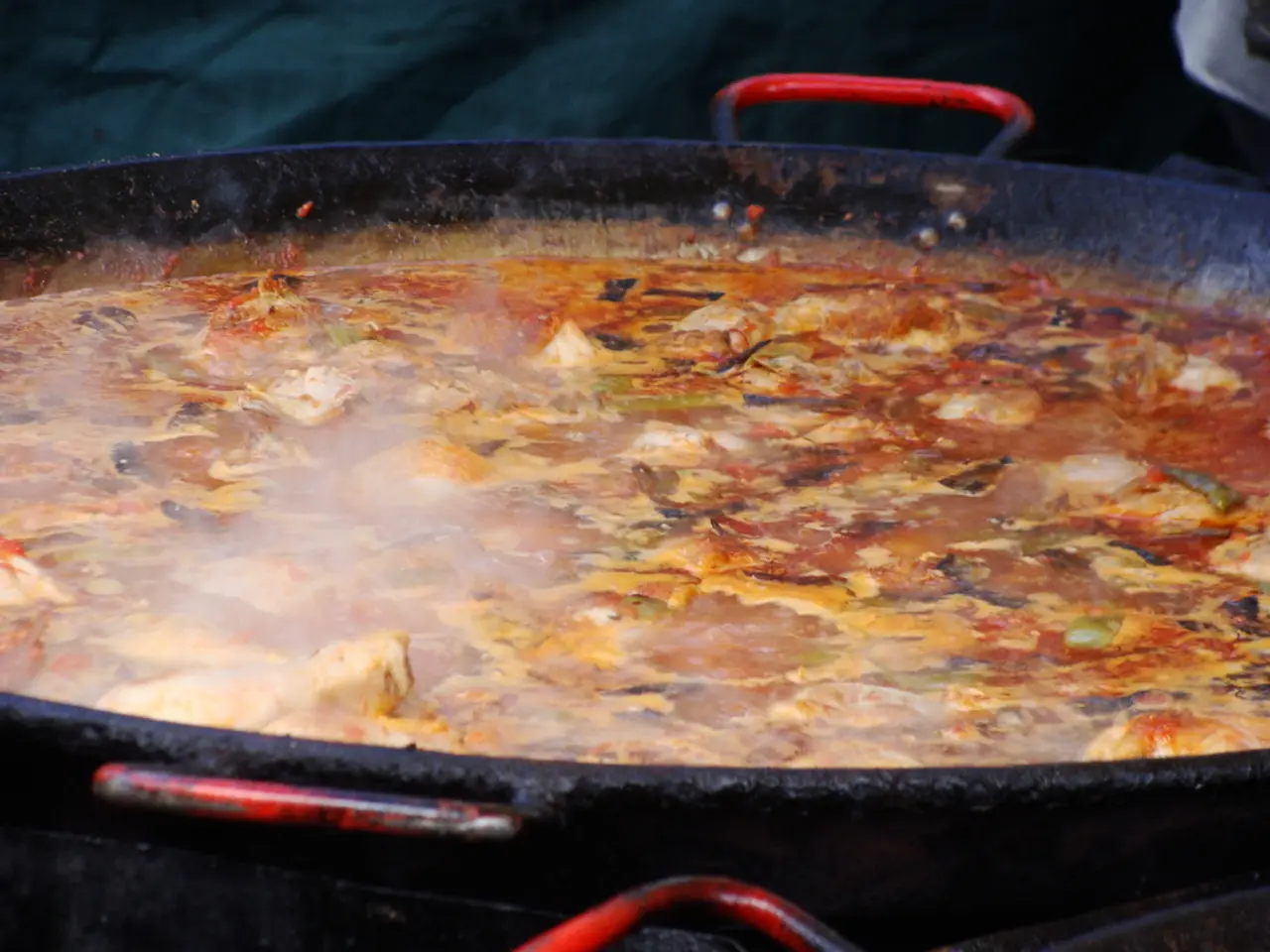Preparing Food for Cognitive Boosting
Intriguing findings from Christophe Lavelle, a biophysicist, are transforming our understanding of the brain during culinary activities. Lavelle's ongoing research suggests that the cerebellum, traditionally associated with motor skills, may also play a significant role in cognitive functions during cooking.
Thomas Doherty and his team at the University of Sheffield have taken this research a step further. They have developed a digitized test to measure executive functions during a cooking task. This test, designed to mimic real-life kitchen scenarios, is helping to uncover the intricate neural mechanisms involved in cooking.
Cooking is more than just a series of technical perceptual and motor skills like cutting, chopping, kneading, peeling, shelling, slicing, decorating, and arranging. It requires a complex interplay of executive functions, including organisational, planning, control, flexibility, and anticipation skills. Additionally, cooking also necessitates memory, calculation, sustained attention, and divided attention.
Lavelle's research could potentially lead to a better understanding of the brain during culinary tasks, which could have implications for improving cognitive abilities through cooking. In fact, preparing meals has been shown to help preserve cognitive abilities, making it a potentially valuable tool in maintaining brain health.
The results from the cooking test developed by Doherty and his team show that verbal comprehension, memory, planning, reasoning, mental flexibility, strategy implementation, and overall executive functions are all involved in a culinary task. These findings add to our growing understanding of the cognitive demands of cooking.
Meanwhile, the trend of culinary reality TV shows is on the rise. These shows not only entertain but also inspire many young people to join hospitality schools. However, the increasing trend of having meals delivered at home could potentially impact this industry in the future.
Lavelle's research, focused on the cerebellum's role in cooking, is a fascinating exploration into the science behind our favourite pastime. As his research continues, we can look forward to a deeper understanding of the brain and its role in cooking.
Read also:
- Energy Minister of Malawi, Ibrahim Matola, heads Malawian delegation for a knowledge exchange on BESS (Battery Energy Storage Systems), a trip held in India. This exchange is backed by the Global Energy African Partnership Program (GEAPP).
- Struggling with health care access, patients across Asia confess, according to a Prudential-funded research project
- Asia's health landscape significantly shaped by philanthropic efforts - Nations bolstered to become self-sufficient in healthcare.
- List of Black Women in STEM Fields Featured on Forbes' 2025 Over 50 List







